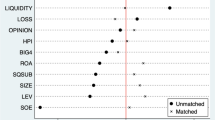Summary
At the outset several propositions were stated regarding the logic of support by economic agents for strict setting of environmental standards and levels of enforcement. By focusing on potential rents generated by output restrictions, particular groups of gainers and losers were identified. The statistical test of the propositions lends support to the notion that rent-seeking behavior matters.
Since the tests were based on a period when federal activity in the environmental arena was rather limited, it is assumed that state and local actions would have been more effectively influenced by those immediately associated with the result of efforts to regulate environmental use.
The fact that environmental control eventually migrated from the state-local level to the federal level suggests that some potential gainers or losers were not satisfied with the mid-1960 result. Firms could relocate and escape the control net. Unions could lose members. Land values would fall concomitantly. By imposing uniform standards and levels of enforcement across space, most of the principal rent-seeking groups could gain. That assertion, a proposition itself, however, awaits the arrival of empirical evidence to support or reject it.
Similar content being viewed by others
Author information
Authors and Affiliations
Rights and permissions
About this article
Cite this article
Yandle, B. Economic agents and the level of pollution control. Public Choice 40, 105–109 (1983). https://doi.org/10.1007/BF00175001
Issue Date:
DOI: https://doi.org/10.1007/BF00175001




